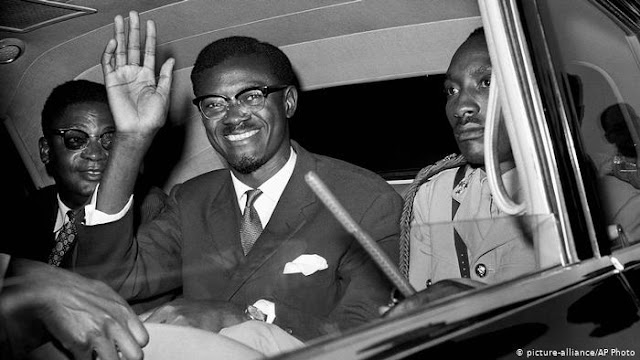BRUSSELS, Belgium
Patrice Lumumba, Congo's first Prime Minister, was assassinated in 1961 and his body destroyed, except for a single tooth. After years of lobbying, his daughter told DW getting his last remains was "a great victory."
A court in Belgium has cleared
the way for the tooth of Congolese independence hero Patrice Lumumba to be
returned to his native country. Prosecutors said on Thursday that Lumumba's
only remains will be handed back to his relatives.
The decision ends years of
lobbying for what is seen as a deeply symbolic gesture to the Congolese people.
Lumumba became the newly
independent Congo's first prime minister in 1960 when he was just 34 years old,
after advocating for an end to colonial rule. But after a military coup and the
rise of dictator Mobutu Sese Seko, Lumumba was arrested and jailed.
He was assassinated by
separatists in January 1961. Lumumba's body is said to have been dismembered
and dissolved with acid, in an apparent attempt to keep any grave from becoming
a pilgrimage site.
The tooth was allegedly pulled
from his corpse during the effort and taken from Congo to Belgium by a man
whose family then apparently kept it for more than half a century. The man was
a policeman who had helped dispose of Lumumba's body.
Eric Van Duyse, a Belgian federal
prosecutor's office spokesman said no DNA test could be conducted on the tooth,
as "if such a test had been done it would have destroyed the tooth
itself.''
But judicial officials were all
but certain that it belonged to Lumumba because of where authorities got the
tooth, Van Duyse said without elaborating.
Juliana Lumumba, the independence
hero's daughter, told DW that the family was happy about the outcome.
"My first reaction is, of
course, that this is a great victory," Lumumba said, "because at
last, 60 years after his death, the mortal remains of my father, who died for
his country and its independence and for the dignity of Black people, will
return to the land of his ancestors."
Her brother Francois Lumumba told
DW it was up to the government of Belgium now to make sure that the remain
returned to Congo's capital, Kinshasa, as soon as possible.
For many in Congo, Lumumba
represents a symbol of what the country could have become after its
independence. His assassination is seen by many as a lost opportunity for
democracy.
Instead, Mobutu went on to rule
the country, which he later renamed Zaire, for decades until his death in 1997.
This time period was characterized by the plundering of the state and its vast
mineral riches.
The death of Lumumba is a highly
contentious event in African history. Question have persisted for decades over
the alleged complicity of Belgium and the United States in the coup and his
death, due to his perceived ties to the Soviet Union.
A Belgian parliamentary probe did
determine that the government was "morally responsible" for
Lumumba's death, while a 1975 US Senate committee uncovered a failed CIA plan
to assassinate him.


No comments:
Post a Comment